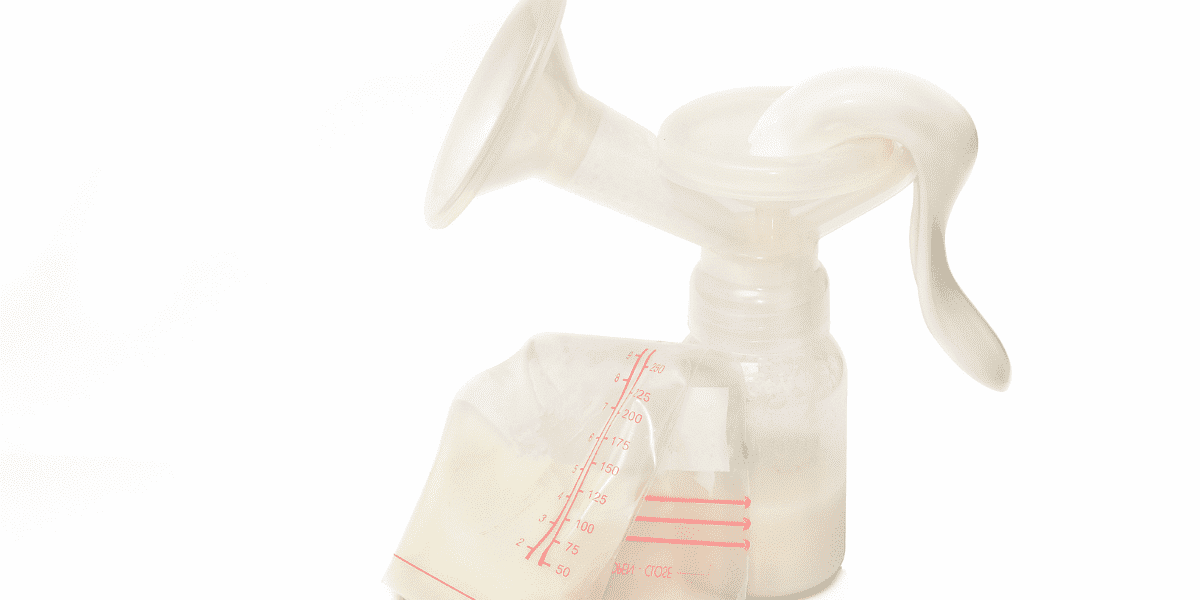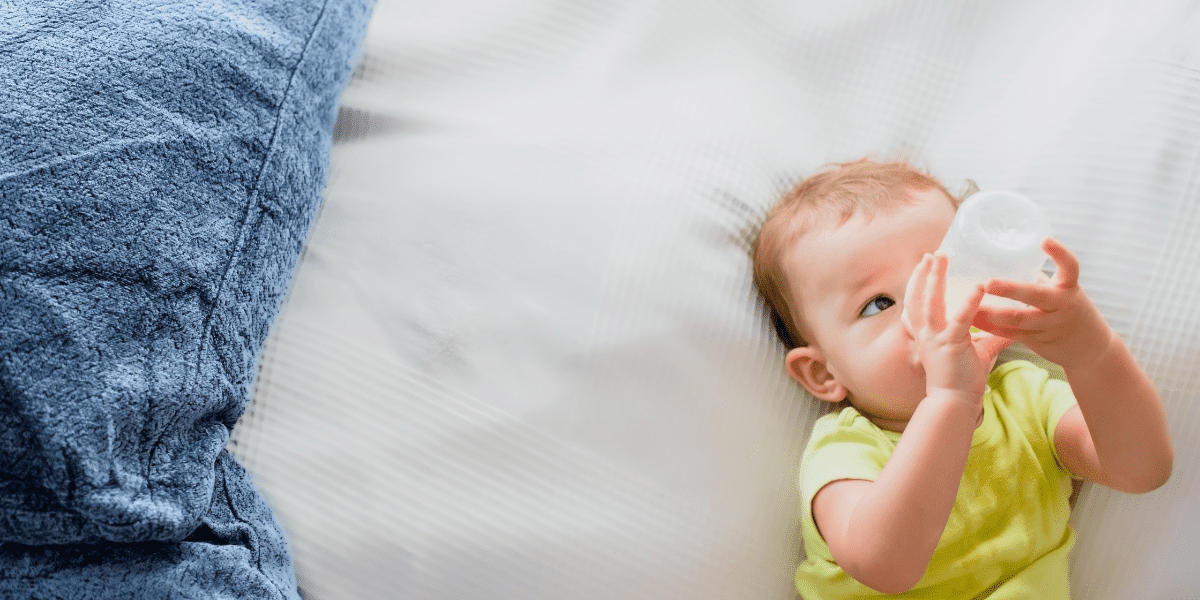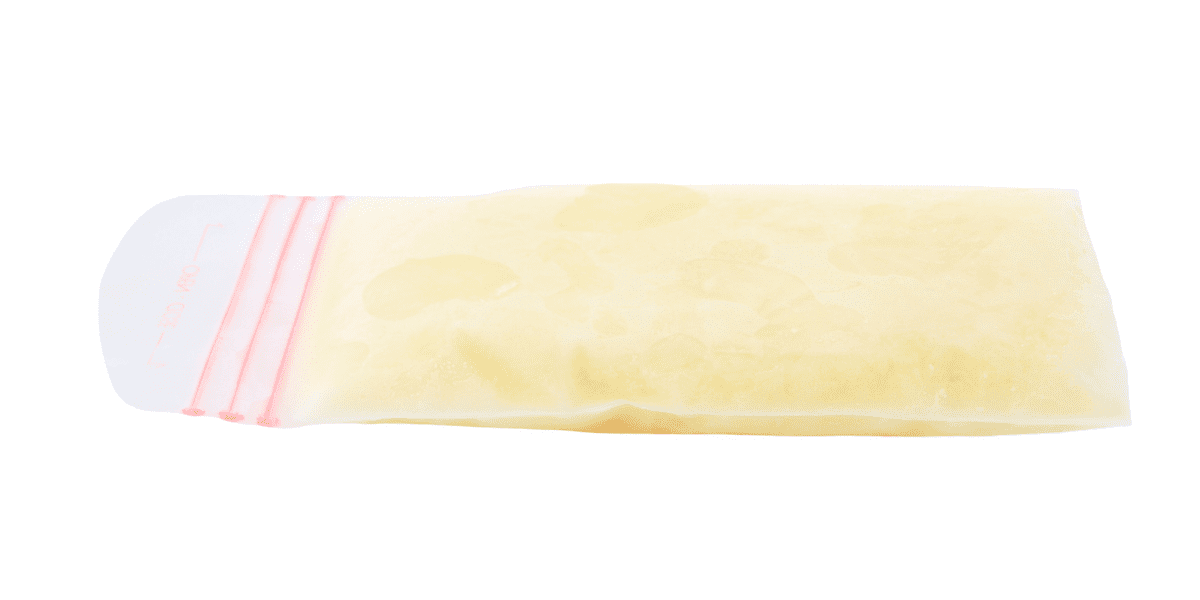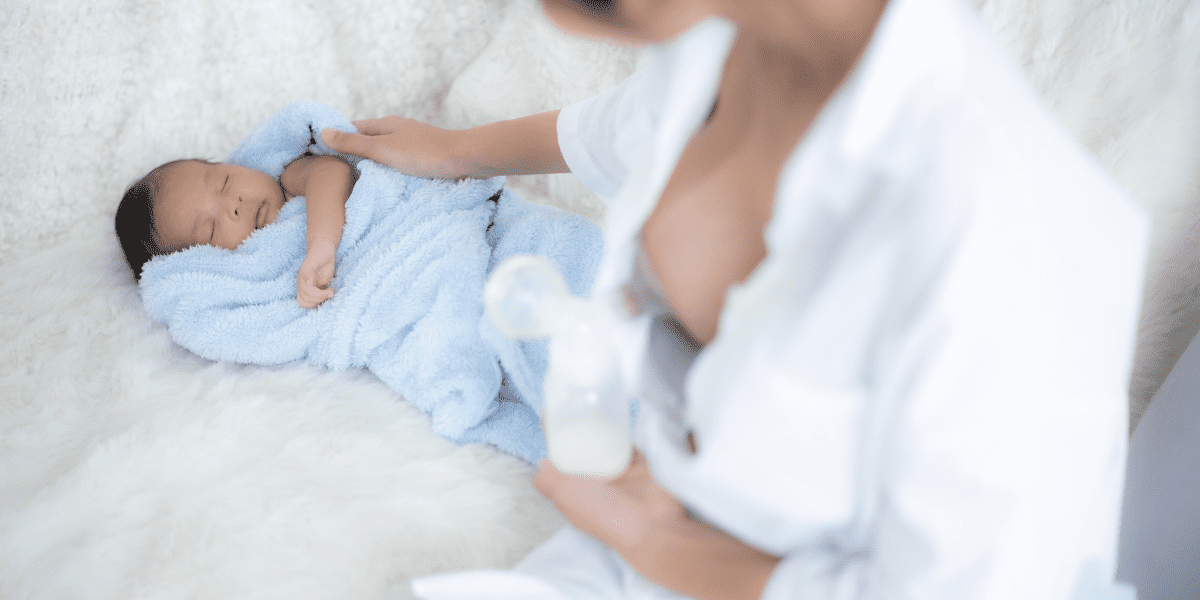As a breastfeeding mother, you probably have a million questions about your breast milk. After all, you want to feed your little one as best you can.
Millions of breastfeeding mothers worry about the preparation, storage, and expiration of their milk. But, unfortunately, it’s not like it comes in a bottle conveniently labeled with a sell-by date and instructions!
As an Amazon Associate, I earn from qualifying purchases. The links below may be affiliate links. Please read my disclosure policy for more information.
One question that comes up repeatedly for mothers is about how often you can heat your breast milk and if you can heat it more than once.
The answer is a bit more complex than a simple yes or no, so let me guide you through everything you need to know about looking after your breast milk to feed your baby.
Why might you want to reheat breast milk?
There are many reasons why you may decide or need to store and reheat your breastfeed rather than feeding straight from the nipple every time, and each reason is entirely valid.
Breast milk is a precious resource that you have lovingly expressed from your breast to give your young ones the nutrients they need to grow. And it can take a significant amount of time to do so.
So, of course, you don’t want a drop of that milk to go to waste!
Likewise, some mothers may struggle to produce enough milk in one go, making every milk drop important.
It can be difficult to throw out your milk just because your baby didn’t finish drinking it, which may also lead you to want to reheat it. However, they eat so often that you want to make the most of your milk!
Finally, for the busy mothers out there, storing your breast milk for later may be necessary if you are going to need to spend time away from your child. This means you leave your baby with someone else who relies on your milk to feed your baby.
If fresh stores run out and you feel uncomfortable feeding your baby formula, you may be interested to see if any leftovers can be reheated and reused.

Why there is a need to be careful about reheating breast milk
Reheating breast milk is a risky business. While there are a few scenarios in which you can reheat them (which we will discuss a bit later), it is always preferable to use fresh breastmilk.
The main concern with reheating breast milk is about the bacteria that starts growing rapidly once the milk mixes with your baby’s saliva.
This growth in bacteria will cause the milk to spoil quickly as well as decrease the nutrients available in the milk.
How do you express milk and keep it sterilized?
If you are even considering reheating your breast milk, the process starts before you’ve even expressed your milk.
The key point to remember with your milk is sterilization and sanitation.
Before you start pumping, it is essential that your hands and all components of your pump are thoroughly sterilized, as well as the container you are going to use to store it in.
To do this, make sure to wash everything thoroughly in hot, soapy water. This way, you kill any residual bacteria that may be lying on any of the instruments.

How do you store milk?
The next vital step to consider is how you store your breast milk.
Firstly, it is important to use BPA-free plastic containers to ensure minimal contamination from harmful chemicals in the plastic.
If you opt for using a milk bag, make sure you squeeze all the air out of it before sealing, as any air left trapped inside will allow bacteria to grow faster, causing your milk to spoil quicker.
It is a great idea to label your containers with the date and time you have expressed your milk so that you can use the oldest first, allowing for the least wastage possible.
Also, the longer you store your milk, the more vitamin c it loses.
When it comes to storage choices, you have a few options:
- Room temperature: Ten hours
- In the fridge: Eight days
- In the ice compartment of the refrigerator: Two weeks
- In the freezer: Three to four months
This will allow you to plan ahead for what you need and ensure you never fall short.
Just be aware that the milk expressed for your baby at a different developmental stage (e.g., a newborn) will not provide adequate nutrition for your baby later on, so it is important not to keep your milk for too long.

Can you save breast milk that my baby didn’t finish?
If you are going to reheat your breast milk, it’s best to do so within an hour of your baby using it before the bacteria from your baby’s mouth has had a chance to cause too much bacteria to grow.
Some people believe that as long as you store the milk properly in a fridge, you can reheat it up to four hours after your baby drinks it.
The main goal for your milk is to preserve nutrients and immunity-boosting properties, so only reheat when you have no other choice, and only as stated above.
And remember that although some babies may prefer it, it is not necessary for them to drink their milk warm.
When shouldn’t you reheat breast milk?
There are a couple of scenarios where you should avoid reheating your breast milk at all costs.
Firstly, if the milk is spoilt, it needs to be thrown out straight away. Usually, a quick sniff test will let you know if this is the case. When in doubt, chuck it out.
Secondly, if your breast milk has been sitting out at room temperature after your baby’s initial feeding, keeping it longer than 30 to 60 minutes is not recommended.
This is because the warm temperature coupled with your child’s saliva creates the perfect breeding ground for bacteria that may make your child sick.
If the milk was previously frozen, you shouldn’t reheat it after the initial heating either.
Finally, if your baby is sick, do not reheat their milk after they’ve drunk from it. If your baby’s saliva causes bacteria to grow on a typical day, imagine how much bacteria is contaminating the milk when your baby is poorly.
It is much better to serve them fresh milk each time.

Best ways to heat your breast milk
Unless you have a baby bottle warmer, it is essential to pay proper attention to how you heat your breast milk so that you can provide your little one with the most nutrients possible to help them grow strong and healthy.
If you are starting with frozen milk, make sure to defrost it slowly overnight by placing it in the fridge. Thawed milk typically lasts about 24 hours, so don’t worry too much about having to use it immediately.
When it comes to heating, avoid the microwave at all costs. It may be quick and convenient, but it’s doing your baby no favors.
The microwave does not heat liquids evenly, which may create hotspots throughout the milk, even if the part you test feels cooler. This could burn your baby’s mouth.
Microwaves also destroy some of the nutrients in your breast milk, meaning they won’t be getting the most significant benefit from their feeding.
The best solution is to gently heat the milk on the stove until it is warm throughout. Don’t let it boil, as this will affect the nutrients and bacteria in the milk.
Remember that it is always better to heat less milk and have to add more than to warm too much and have to reheat or waste any.
It may be more effort, but it is worth it for your baby’s health and preserving your breast milk as best as possible.

As mothers, we want to take care of our babies in the best way we can. But, for various reasons, we may need to store and reheat our milk.
We don’t want to waste a single drop if we can help it, it takes so much time and energy to produce. But we also don’t want to jeopardize the nutritional benefits that our breast milk has for our baby.
Motherhood doesn’t come with an instruction manual, so we can help each other by spreading our knowledge as a community.
So, next time you are contemplating reheating your breast milk, consider the initial portion sizes you are heating and how you are storing your milk.
Of course, fresh is always best, so avoiding getting into a situation where you have excess milk to reheat is always the best course of action where possible.
However, if you find yourself in a situation where you need to reheat your baby’s milk, and it is safe to do so (as outlined in this article), then don’t feel bad about it. After all, we’re all just mothers trying to do our best, and that is all we can ask of ourselves.
Happy feeding!

